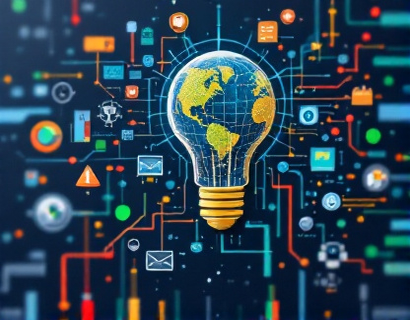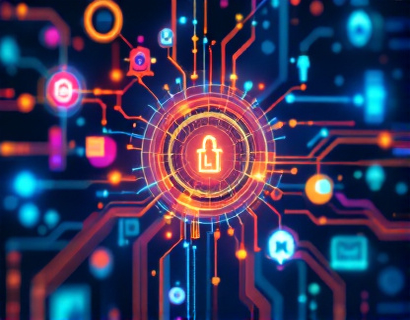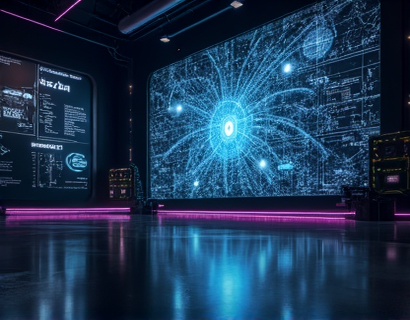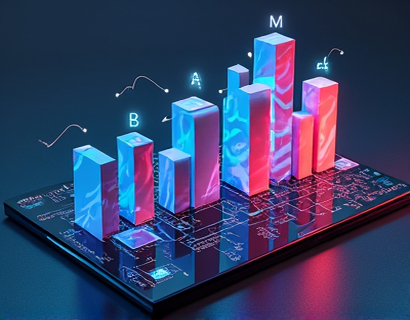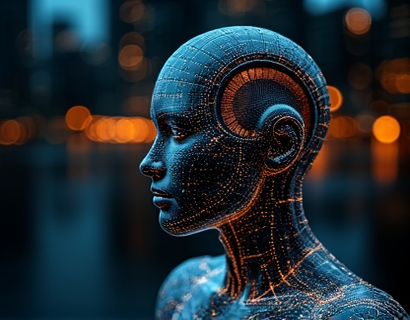Transforming Education with AI-Powered Chatbots: A New Era for Learning
The integration of artificial intelligence in educational settings has opened new avenues for learning, making knowledge more accessible and interactive. Among the innovative solutions emerging is an AI-powered educational chatbot designed specifically to serve children and students. This chatbot serves as a gateway to verified, educational content focused on industry services and trends, ensuring a safe and engaging learning environment.
Understanding the Need for AI in Education
The traditional methods of education, while foundational, often struggle to keep pace with the rapid advancements in technology and industry practices. To bridge this gap, there is a growing need for educational tools that not only provide up-to-date information but also engage students in a dynamic and interactive manner. AI-powered chatbots address this need by offering personalized learning experiences, real-time updates, and a safe space for exploration and inquiry.
Key Features of AI-Powered Educational Chatbots
These chatbots are equipped with advanced natural language processing capabilities, enabling them to understand and respond to user queries in a conversational manner. This feature is crucial for maintaining engagement, especially among younger users who are more accustomed to interacting with technology through conversational interfaces.
Content Verification and Safety
One of the most significant advantages of AI-powered educational chatbots is their ability to provide content that is thoroughly verified. Unlike general search engines where the accuracy and reliability of information can vary, these chatbots source data from trusted educational institutions, industry experts, and peer-reviewed journals. This ensures that the information provided is not only current but also accurate and safe for children and students to consume.
Interactive and Personalized Learning
The chatbot's interactive nature allows for a personalized learning experience. Users can ask questions, seek clarifications, and explore topics of interest in depth. The AI algorithm adapts to the user's learning pace and style, offering tailored content and resources. This personalization is key to keeping students engaged and motivated, fostering a love for learning that extends beyond the classroom.
Industry Insights and Workshop Services
For students interested in specific industries, these chatbots offer insights into the latest trends, technologies, and practices. Whether it's the manufacturing sector, healthcare, technology, or any other field, the chatbot can provide detailed information on workshop services, training programs, and educational pathways. This not only enriches the student's knowledge but also helps in making informed decisions about future career paths.
Real-World Applications
Consider a student with a keen interest in robotics. Through conversation, the chatbot can guide this student to resources on robotics workshops, highlight recent advancements in robotic technology, and even suggest projects or competitions to participate in. This level of interaction and resource provision is invaluable, bridging the gap between theoretical knowledge and practical application.
Ensuring a Safe Learning Environment
The safety of children and students online is paramount. AI-powered educational chatbots are designed with multiple layers of safety measures to ensure a secure learning environment. These include strict content filtering to prevent exposure to inappropriate or harmful content, privacy protections to safeguard user data, and monitoring systems to detect and respond to any suspicious activity.
Parental and Educational Institution Controls
To further enhance safety, these chatbots offer tools for parents and educators. Adults can set boundaries, monitor usage, and receive reports on the student's activities and learning progress. This level of oversight allows for a balanced approach, combining the benefits of AI-driven learning with the necessary guidance and control.
Enhancing Engagement and Learning Outcomes
Engagement is a critical factor in educational success, and AI chatbots excel in this area. By presenting information in a conversational format, these chatbots make learning more enjoyable and less intimidating. Students are more likely to ask questions, explore topics deeply, and retain information when the learning process feels interactive and personalized.
Gamification and Motivation
Many AI educational chatbots incorporate elements of gamification to boost motivation and engagement. This can include earning badges for completing modules, participating in quizzes, or contributing to discussions. Such features not only make learning fun but also encourage a sense of achievement and progress.
Future Prospects and Challenges
As AI technology continues to evolve, the potential for educational chatbots to transform learning is immense. Future developments may include more sophisticated AI models that can better understand context, emotion, and individual learning needs. However, alongside these advancements, challenges such as ensuring equitable access to technology and addressing the digital divide remain crucial considerations.
The Role of Educators
Educators play a vital role in integrating AI chatbots into the educational landscape. Their guidance is essential in curating relevant content, setting educational goals, and fostering a holistic learning experience. By collaborating with AI tools, educators can focus more on mentorship and less on information dissemination, creating a more dynamic and supportive learning environment.
Conclusion
The introduction of AI-powered educational chatbots marks a significant step forward in making education more accessible, engaging, and safe for children and students. By providing verified, interactive content and fostering a love for learning, these chatbots are poised to play a pivotal role in shaping the future of education. As we continue to navigate the digital age, embracing such innovative solutions will be key to preparing the next generation for the challenges and opportunities ahead.










